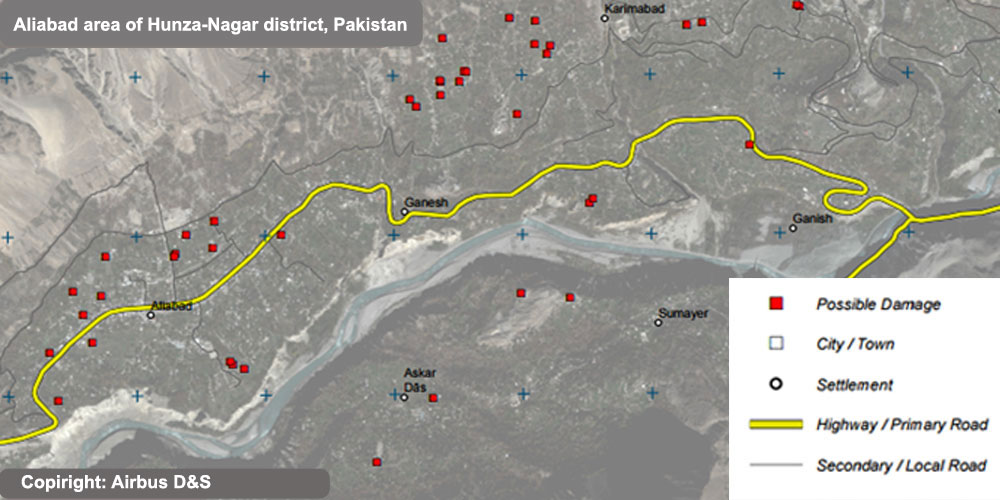Supporting Earthquake Response in Afghanistan and Pakistan
20 November 2015, Geneva, Switzerland – On last 26 October 2015 a magnitude 7.5 earthquake struck Hindu Kuch mountain regions in Afghanistan and Pakistan. The earthquake was even felt in New Delhi, India, and Islamabad, Pakistan. The United Nations Office for the Coordination of Humanitarian Affairs (UNOCHA) and National Disaster Management Authority in Pakistan (NDMA) requested our Rapid Mapping Service to analyze the severity of damages affecting the Afghanistan and Pakistan regions touched by the seismic tremors.
We immediately triggered the International Space Charter, which aims to provide a unified system of space data acquisition and delivery to those affected by natural or man-made disasters. Member agencies of the Space Charter make satellite imagery available in order to help assess the situation on the ground. UNOSAT was responsible for all coordination and production activities related to satellite imagery assessments. Once images were delivered to our CERN office, UNOSAT analysts started working to evaluate damage to specific regions and towns as requested by both UNOCHA and NDMA Pakistan. In this case, our analysts looked specifically for 3 main types of damage:
- Damage to houses, buildings, etc;
- Damage to road infrastructures;
- Jams (any blockage or massive accumulation in a river).

We appreciate the response given by your team in such a coordinated and organized manner.
Quite surprisingly, we observed less damage than expected for an earthquake of this magnitude and we already released 6 maps for both countries. Nevertheless we are still working on new maps and imagery-acquisition for Afghanistan in support to the World Food Programme (WFP).
Our beneficiaries use our maps to set priorities, plan interventions and execute field activities. Our output allows for better informed decisions in what are often chaotic working environments, especially early on in the event. Example activities which our maps supported include cleaning of roads, verifying damage extent, as well as checking public infrastructures such as schools, hospitals and administration buildings.
Being able to acquire satellite images and analyze them rapidly is crucial for humanitarian purposes and requires significant dedication from our team; this is why we are proud to share this testimonial from NDMA Pakistan who thanked us for
“the response given by [UNOSAT] team in such a coordinated and organized manner [...] for the sake of Better, Targeted, Result Oriented and Timely Disaster Management Activities”.
Related links
UNOSAT maps on Afghanistan
UNOSAT maps on Pakistan

